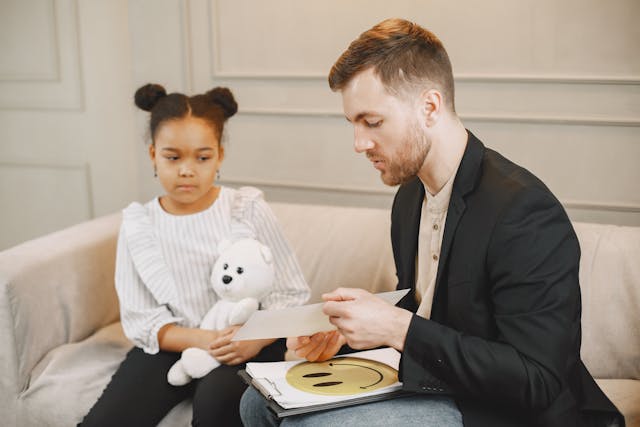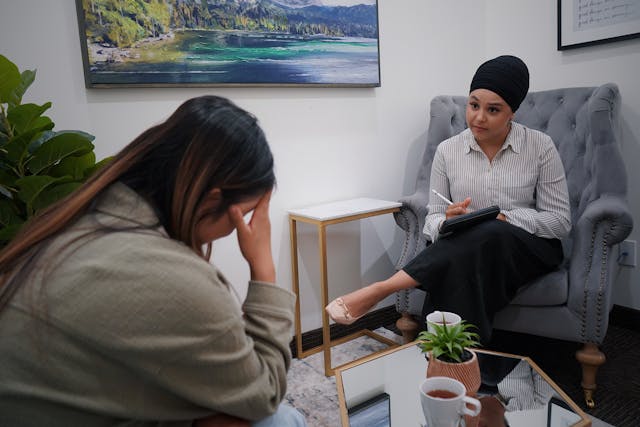Overview
CPT codes for therapy are essential for healthcare professionals to document and bill for mental health services accurately. These standardized CPT codes, maintained by the American Medical Association, cover various psychiatric services, including diagnostic evaluations, individual and group psychotherapy, and crisis interventions. Mental health providers use these CPT codes to ensure proper reimbursement, demonstrate medical necessity, and comply with healthcare regulations.
The CPT code set for mental health encompasses treatments for conditions like post-traumatic stress disorder and anxiety disorder. It includes codes for initial evaluations, therapy sessions of various durations, and add-on codes for services like interactive complexity.
Behavioral health professionals must be familiar with standard psychotherapy CPT codes, evaluation and management codes, and appropriate modifiers to accurately represent the services provided and support effective patient care and reimbursement.
What are CPT codes for therapy?
CPT codes for therapy are standardized numerical codes used by mental health providers to document and bill for psychiatric services. Developed by the American Medical Association, these codes fall within the range of 90785-90899 in the CPT code set.
Mental health professionals must select the appropriate code based on the service performed, session duration, and any additional complexities. Proper use of these codes is crucial for demonstrating medical necessity. Understanding CPT code modifiers and add-on codes allows for more precise coding of services, ensuring accurate billing and supporting quality patient care in behavioral health settings.
Categories of mental health CPT codes
Mental health CPT codes are organized into several categories, each designed to accurately represent different aspects of psychiatric services and behavioral health care. These categories help mental health providers and qualified health professionals to document and bill for the services they provide precisely.
Diagnostic evaluation codes
These CPT codes for therapy are used for initial evaluations and assessments. The most common code is 90791 for psychiatric diagnostic evaluation without medical services. Qualified healthcare professionals, including clinical social workers and clinical nurse specialists, use these codes to document comprehensive mental status exams and initial evaluations.
Psychotherapy codes
Psychotherapy codes are among mental health providers' most common CPT codes. They include:
- Individual psychotherapy (90832, 90834, 90837) based on minutes of psychotherapy
- Group psychotherapy (90853)
- Family counseling (90846, 90847)
- Multiple family group psychotherapy (90849)
These codes are essential for mental health billing and demonstrating medical necessity for conditions like post-traumatic stress disorder and anxiety disorders.
Crisis intervention codes
Crisis codes are used for psychotherapy in crisis situations. The primary code is 90839 for the first 60 minutes of a crisis psychotherapy session, with an add-on code (90840) for each additional 30 minutes.
Evaluation and management (E/M) codes
When significant evaluation and management services are provided, E/M codes are used with psychotherapy services. Psychotherapy that does not include medical evaluation and management services is coded as 90832, 90834, and 90837. When psychotherapy is accompanied by medical evaluation and management services, it is reported using E/M service codes along with a psychotherapy add-on code (90833, 90836, or 90838).
Interactive complexity code
The interactive complexity code (90785) is an add-on code used when communication factors complicate the primary service. It's often used in conjunction with other psychiatric services.
Other psychiatric services
This category includes codes for specialized services such as:
- Standardized psychological/neuropsychological testing (96146)
- Developmental test administration (96112, 96113)
- Other psychiatric services not covered by specific psychotherapy codes
Add-on codes
Standard add-on codes in mental health CPT coding include:
- Interactive complexity (90785)
- Extended session add-ons
- Psychotherapy add-on code for medication management
These codes work with a primary service code to provide a more accurate description of the service performed. By understanding and correctly using these categories of mental health CPT codes, behavioral health professionals can ensure precise billing, support insurance claims, and effectively communicate the nature of services provided to patients with various mental health conditions.
Top CPT Codes for Therapy
Mental health providers must understand the most common CPT codes for therapy to ensure accurate billing and proper reimbursement for their services. These codes, established by the American Medical Association, represent a range of psychiatric services and are crucial for demonstrating medical necessity in mental health treatment.
The following list highlights some of the top CPT codes frequently used by behavioral health professionals, including clinical social workers and qualified health care professionals, in various therapeutic settings.
1. 90791: Psychiatric diagnostic evaluation
This code is used for initial evaluations without medical services. It involves a comprehensive assessment of a patient's mental status, history, and symptoms. Clinical social workers and other qualified health professionals use this code for the first session to establish a diagnosis and treatment plan.
2. 90837: Individual psychotherapy (60 minutes)
This standard psychotherapy CPT code is for individual therapy sessions lasting 53 minutes or more. It's frequently used for treating conditions like post-traumatic stress disorder and anxiety disorders. Mental health providers must document the medical necessity for using this extended session code.
3. 90834: Individual psychotherapy (45 minutes)
Used for therapy sessions lasting 38-52 minutes, this is one of the most common CPT codes for therapy. It's suitable for standard-length sessions addressing various mental health concerns and is widely accepted by insurance companies.
4. 90847: Family/couples therapy (with patient present)
This code is used for family counseling sessions where the identified patient is present. It's crucial for addressing family dynamics in mental health treatment and is often used in conjunction with individual therapy codes.
5. 90853: Group psychotherapy
Group psychotherapy is an effective treatment modality for many mental health conditions. This code is used for group sessions, excluding multiple family group psychotherapy, which has its code.
6. 90839: Psychotherapy for crisis
This crisis code is used for urgent assessment and history of a crisis state, along with psychotherapy to minimize the potential for psychological trauma. It's typically used for the first 60 minutes of a crisis session, with add-on code 90840 for additional time.
7. 90785: Interactive complexity (add-on code)
This is a standard add-on code used when communication factors complicate the primary service. It can be added to other psychiatric services, including diagnostic evaluations and psychotherapy codes.
8. 96116: Neurobehavioral status exam
Used for assessment of thinking, reasoning, and judgment, this code is often employed in cases requiring cognitive evaluation. It's particularly relevant for cognitive function conditions and can include standardized cognitive performance testing.
By understanding and correctly applying these CPT codes, behavioral health professionals can ensure accurate billing, demonstrate medical necessity, and effectively communicate the services provided in mental health treatment.
Updates to mental health CPT codes for 2024
The American Medical Association (AMA) has significantly changed CPT codes for mental health services. These updates aim to improve billing accuracy and reflect evolving practices in mental health care. Key changes include:
New codes for crisis psychotherapy services
New codes have been introduced for psychotherapy for crises in non-office settings, enhancing the ability to bill accurately for these critical mental health services.
Telehealth billing changes
In-home telehealth services must now be billed at non-facility rates, affecting reimbursement for remote mental health services and psychotherapy.
Evaluation and management (E/M) code updates
Psychiatrists using evaluation and management codes should note that time ranges have been replaced with minimum time requirements for each correct CPT code. This change affects how medical services and psychiatric diagnostic evaluations are billed.
Expanded provider eligibility for medicare billing
Mental health counselors (MHCs) and marriage and family therapists (MFTs) can bill Medicare directly for their mental health services using appropriate CPT codes.
Increased relative value units (RVUs)
Mental health CPT codes, including those for crisis care, psychotherapy services, and substance use disorder treatment, will see a significant increase in RVUs over four years, starting in 2024. These updates reflect ongoing efforts to improve mental health service billing and reimbursement. Mental health providers must stay informed about these changes to ensure the use of correct CPT codes for their medical procedures and psychotherapy services.
Proper understanding and application of these updated mental health CPT codes are crucial for accurate billing and optimal reimbursement for evaluation and management services in the mental health field.
Conclusion
In conclusion, mastering CPT codes is crucial for mental health professionals to document and bill for their services accurately. Correct CPT codes ensure proper reimbursement and demonstrate the medical necessity of mental health services.
Mental health CPT codes cover various services, including evaluation and management, psychotherapy, and crisis interventions. Using the correct CPT code for each service provided helps mental health professionals streamline their billing processes and contribute to a standardized system that facilitates communication between providers, insurers, and regulatory bodies.
As the field of mental health continues to evolve, staying updated on CPT codes and their proper application remains an essential skill for all behavioral health practitioners.




.jpg)

.jpg)
.jpg)





.jpg)

.jpg)


.jpg)


.jpg)




